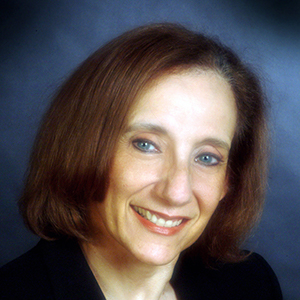Making a bigger footprint
One of the first tasks on my to-do list each morning is to quickly peruse the many emails I receive overnight. You might think that getting a large number of emails during the night is strange, but I live in Australia and am therefore asleep during regular office hours in the U.S. More often than not, one or two things in this long morning list affect, and occasionally completely mess up, my plans for the rest of the day.
While skimming through an unusually long list of messages one morning in early April 2021, I noticed an email from Toni Antalis, president of the American Society for Biochemistry and Molecular Biology. Because this was unexpected, it was one of the first messages I opened that day. I was hugely surprised and delighted to read that I had been selected as an inaugural ASBMB fellow. So, rather than mess up my day, Toni’s message had quite the opposite effect.
On looking through the list of fellows, I was even more surprised to discover that I was the only one who was not from the U.S. While it could be argued that this made my election as an ASBMB fellow special, that is not how I saw it. Indeed, the first thing that occurred to me is that we need to develop a strategy to remove any notion that membership in the ASBMB only benefits people who reside in the U.S. In other words, it is really important to increase the international footprint of ASBMB membership at all levels, from the most junior postdoctoral fellow right through to senior scientist.
I have been involved with the ASBMB since the late 1980s when I was a junior postdoctoral fellow and a frequent author of submissions to the Journal of Biological Chemistry. As the years passed, my interests moved away from the biophysical chemistry that formed the foundation of my career as an independent scientist and headed toward the biology and function of lipids. This led to an invitation to become an editorial board member of the Journal of Lipid Research. After several years of reviewing manuscripts for the journal, I was appointed as an associate editor, a position I held for 10 years until assuming my current role as co-editor-in-chief in 2019.
This appointment has given me a much greater insight into the ASBMB as an organization and not just as a publisher of quality scientific research. In addition to making an invaluable contribution to the scientific community and advancing knowledge with its three journals, the ASBMB also provides numerous opportunities for its members to develop networks and initiate important, long-standing collaborations with like-minded scientists at all career stages.
The vibrant and active community that constitutes the membership of the ASBMB has contributed to many a stellar scientific career and not only serves to expand individual interests but also ensures that its members are fully informed about the most recent research advances. Membership comes with huge benefits for all of us, and it is something I value enormously.
For this reason I strongly encourage anyone reading this to join the ASBMB, to sign up for online ASBMB events, to attend ASBMB meetings — whether virtual or face-to-face — and to take advantage of the resources the society offers to build your personal and professional networks.
I have resolved to assist the society in any way I can to build its international membership profile, and this year I plan to work toward engaging with U.S.-based as well as international members in all aspects of the ASBMB’s activities. I look forward to many of you joining me in this endeavor and hope to see you either virtually or face-to-face in the coming year.
Enjoy reading ASBMB Today?
Become a member to receive the print edition four times a year and the digital edition monthly.
Learn moreGet the latest from ASBMB Today
Enter your email address, and we’ll send you a weekly email with recent articles, interviews and more.
Latest in Opinions
Opinions highlights or most popular articles

Women’s health cannot leave rare diseases behind
A physician living with lymphangioleiomyomatosis and a basic scientist explain why patient-driven, trial-ready research is essential to turning momentum into meaningful progress.

Making my spicy brain work for me
Researcher Reid Blanchett reflects on her journey navigating mental health struggles through graduate school. She found a new path in bioinformatics, proving that science can be flexible, forgiving and full of second chances.

The tortoise wins: How slowing down saved my Ph.D.
Graduate student Amy Bounds reflects on how slowing down in the lab not only improved her relationship with work but also made her a more productive scientist.

How pediatric cataracts shaped my scientific journey
Undergraduate student Grace Jones shares how she transformed her childhood cataract diagnosis into a scientific purpose. She explores how biochemistry can bring a clearer vision to others, and how personal history can shape discovery.

Debugging my code and teaching with ChatGPT
AI tools like ChatGPT have changed the way an assistant professor teaches and does research. But, he asserts that real growth still comes from struggle, and educators must help students use AI wisely — as scaffolds, not shortcuts.

AI in the lab: The power of smarter questions
An assistant professor discusses AI's evolution from a buzzword to a trusted research partner. It helps streamline reviews, troubleshoot code, save time and spark ideas, but its success relies on combining AI with expertise and critical thinking.

